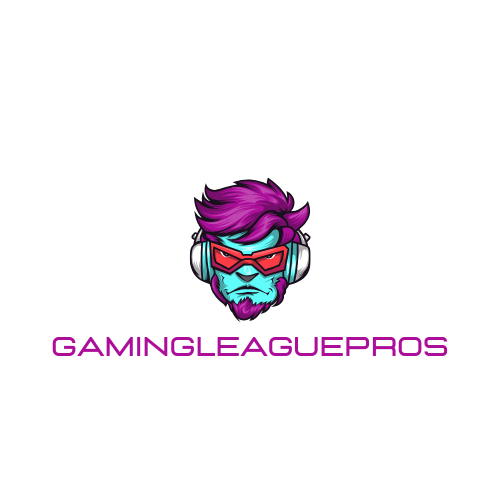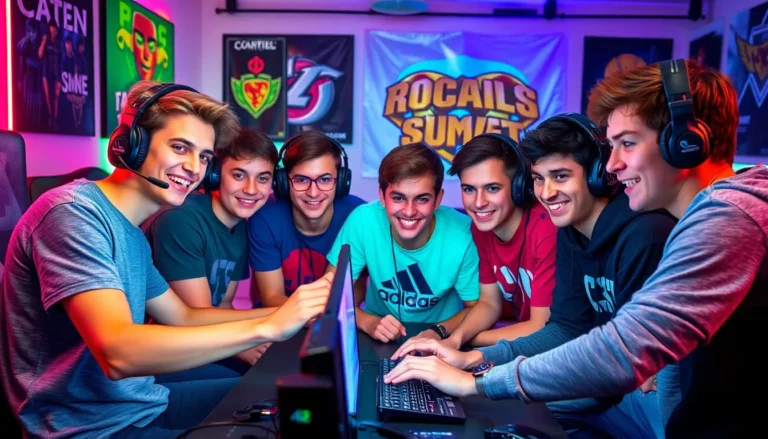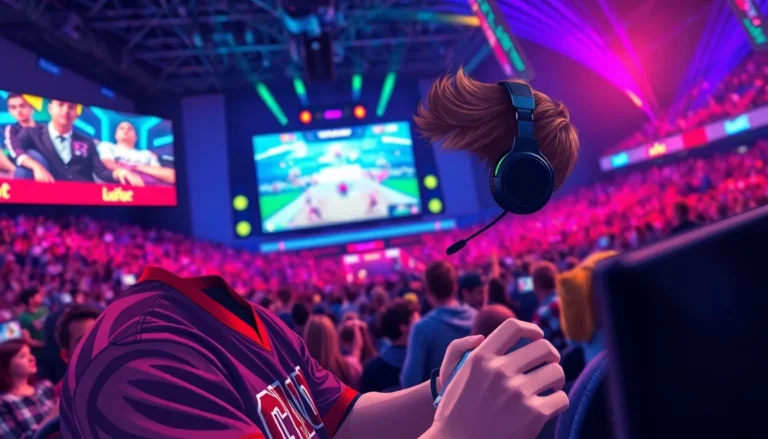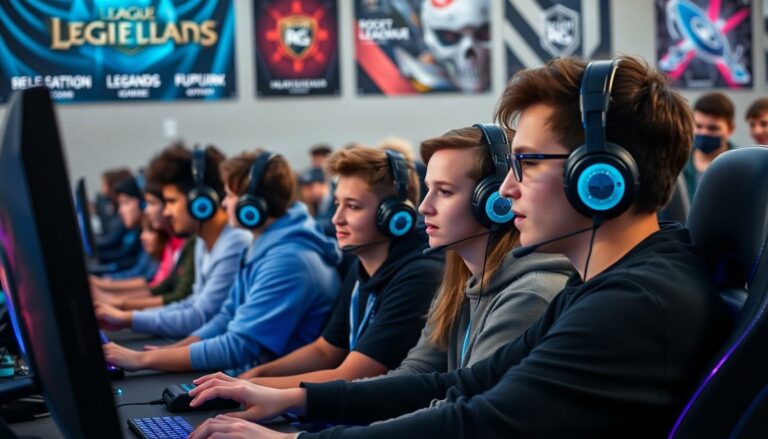In the fast-paced world of gaming, where pixels reign supreme and high scores can make or break a career, gaming sponsorship has emerged as the golden ticket. Imagine being able to turn those late-night gaming marathons into a paycheck. Sounds like a dream, right? Well, it’s not just a fantasy anymore; it’s a thriving reality for many.
Gaming Sponsorship
Gaming sponsorship represents a growing opportunity in the competitive gaming world. Gamers can monetize their skills and passion, attracting brands that seek visibility through this medium.
Definition and Overview
Gaming sponsorship involves financial support or resources provided by brands to gamers or esports teams. Brands gain exposure by associating with popular gamers and streamers. This collaboration can include endorsements, merchandise promotions, or event participation. In return, sponsored individuals gain access to funds, equipment, and marketing support. Companies may target specific demographics, aligning their products with the gaming community’s interests.
Importance in the Gaming Industry
Gaming sponsorship plays a crucial role in shaping the industry. Increased funding fuels game development, tournament organization, and community engagement. Sponsorship enables gamers to focus on their craft, dedicated to improving their gameplay. Relevant partnerships increase brand loyalty as gamers promote products to their audiences. By investing in sponsorship, brands enter an engaged market, creating stronger connections with potential consumers. Furthermore, the visibility generated can lead to wider reach and growth for both sponsors and gamers alike.
Types of Gaming Sponsorship
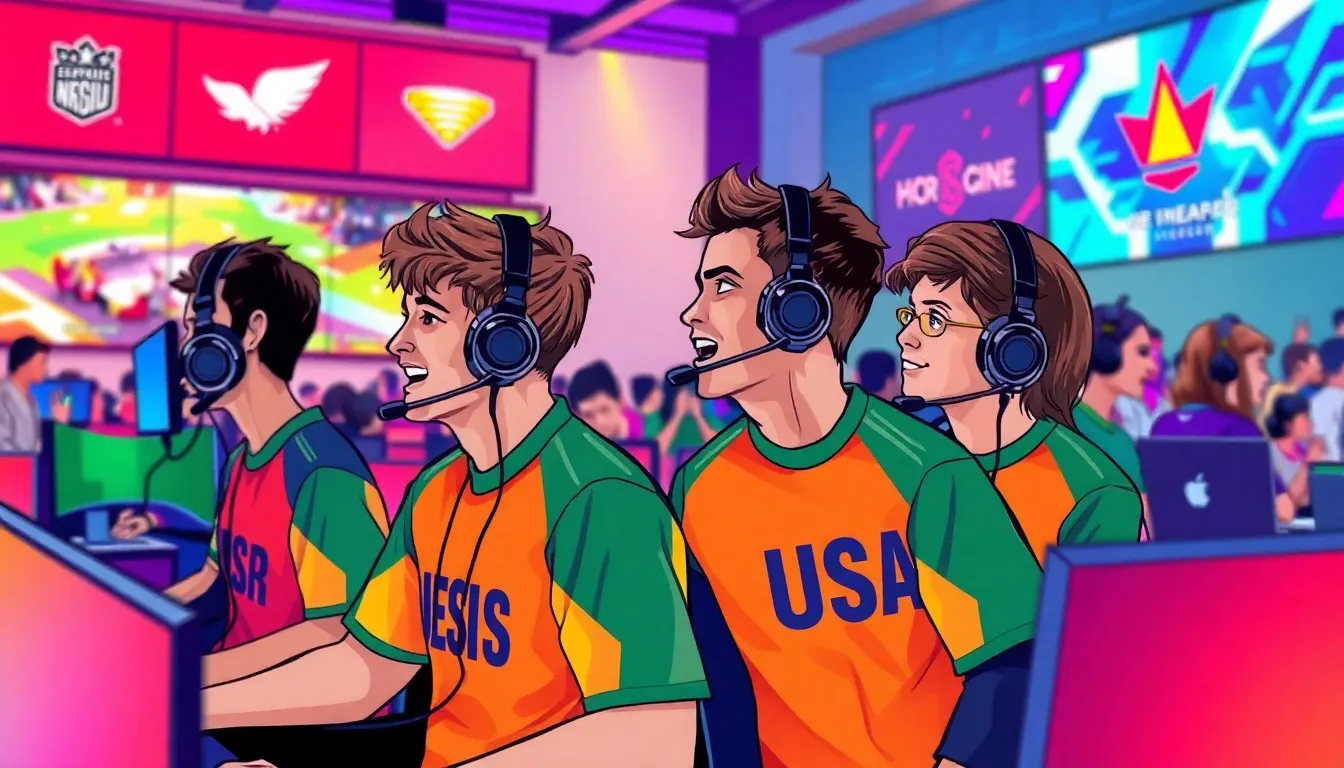
Various forms of gaming sponsorship exist, each serving distinct purposes and benefiting different parties. Understanding these types helps clarify how brands and gamers collaborate to create mutually beneficial relationships.
Team Sponsorship
Team sponsorship involves brands partnering with esports teams to increase visibility and reach. Brands provide financial support or resources in exchange for promoting their products during competitions. Teams display logos on jerseys and social media platforms, enhancing brand exposure among fans. Companies, by aligning with successful teams, tap into dedicated fan bases that follow their favorite players closely. This sponsorship type is significant, as it helps players focus on skill development while ensuring teams have the financial backing required to compete at high levels.
Event Sponsorship
Event sponsorship centers around funding specific gaming tournaments or conventions. Brands invest in these events to showcase their products while enhancing attendee experiences. In return, sponsors receive promotional opportunities, such as logo placement, branded merchandise, or exclusive event access. Events gain credibility through partnerships with well-known brands, attracting larger audiences. Gamers benefit from enhanced experiences due to improved event logistics and additional resources provided by sponsors, leading to better tournaments and community engagement.
Affiliate Sponsorship
Affiliate sponsorship allows brands to work with individual gamers or streamers to promote their products through affiliate marketing. In this arrangement, gamers earn commissions on sales generated through their unique referral links. By sharing discount codes or promotional content, streamers incentivize their followers to engage with sponsored products. This sponsorship type balances brand promotion with authentic recommendations from trusted figures in the gaming community. Consumers often respond positively due to personal connections with the individuals promoting these products, enhancing brand loyalty and driving revenue for both parties involved.
Benefits of Gaming Sponsorship
Gaming sponsorship offers significant advantages for all parties involved. The benefits for sponsors and gamers included here highlight the collaborative potential of this thriving industry.
For Sponsors
Increased brand visibility ranks among the top advantages for sponsors. Access to dedicated gamer audiences ensures that brands reach highly engaged consumers. Improved brand reputation follows as sponsorship fosters positive associations with popular gamers and successful esports teams. Cost-effective marketing strategies emerge from collaborations, often yielding a higher return on investment than traditional advertising avenues. Engaging content creation leads to creative marketing opportunities, including influencer campaigns and branded streams. Lastly, sponsors benefit from a dynamic platform, as gaming cultures evolve and present fresh engagement methods regularly.
For Gamers and Teams
Sponsorship provides monetary support that enables gamers to pursue their passion full-time. Access to resources such as equipment, training, and travel becomes more feasible with financial backing. Professional development opportunities expand, as sponsored gamers can connect with industry experts and mentors. Brand partnerships enhance credibility by associating gamers with trusted names in the industry. Gamers and teams benefit from exposure through promotional events, tournaments, and merchandising. Lastly, sponsorship cultivates community engagement, helping gamers connect with their audience while creating loyalty and fostering long-lasting relationships.
Challenges in Gaming Sponsorship
Gaming sponsorship faces several challenges that sponsors and gamers must navigate. Maintaining visibility in a crowded marketplace proves difficult as numerous brands vie for attention.
Market Saturation
Market saturation significantly impacts gaming sponsorship effectiveness. Many brands compete for the same target audience, which often leads to excessive promotion and reduced consumer engagement. Difficulty in standing out increases as saturation grows, with gamers overwhelmed by sponsorship messages. Successful differentiation hinges on unique brand narratives and authentic connections with audiences. Brands must explore innovative marketing strategies to capture and retain consumer interest in this competitive landscape.
Measuring Return on Investment
Measuring return on investment presents a complex challenge in gaming sponsorship. Brands find it tough to quantify the effectiveness of their sponsorship initiatives. Definitions of success vary, complicating the assessment of sponsorship impact. Gamers and sponsors both seek data to validate their partnerships, yet precise metrics can be elusive. Employing multifaceted evaluation methods, including engagement rates, brand recall surveys, and sales performance analytics, helps to provide a clearer picture. Gathering comprehensive data allows both parties to adjust strategies for optimized outcomes.
Conclusion
Gaming sponsorship stands as a transformative force in the gaming industry. It not only empowers gamers to turn their passion into profit but also fosters a dynamic relationship between brands and their audiences. As the landscape evolves both gamers and sponsors must adapt to the challenges of market saturation and ROI measurement.
The potential for growth remains immense as innovative strategies and authentic connections become paramount. By embracing gaming sponsorship, both parties can navigate the complexities of this thriving ecosystem while reaping the rewards of collaboration. The future of gaming sponsorship promises exciting opportunities for all involved.
